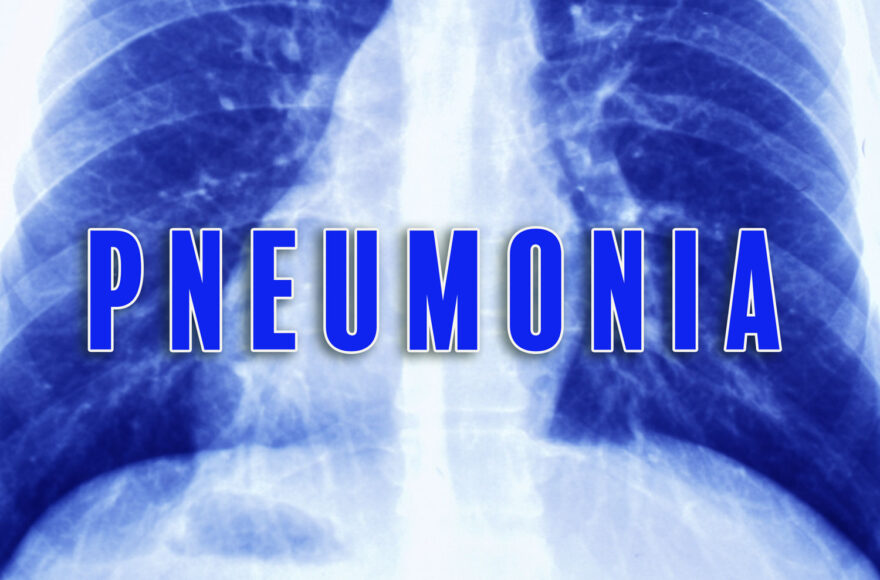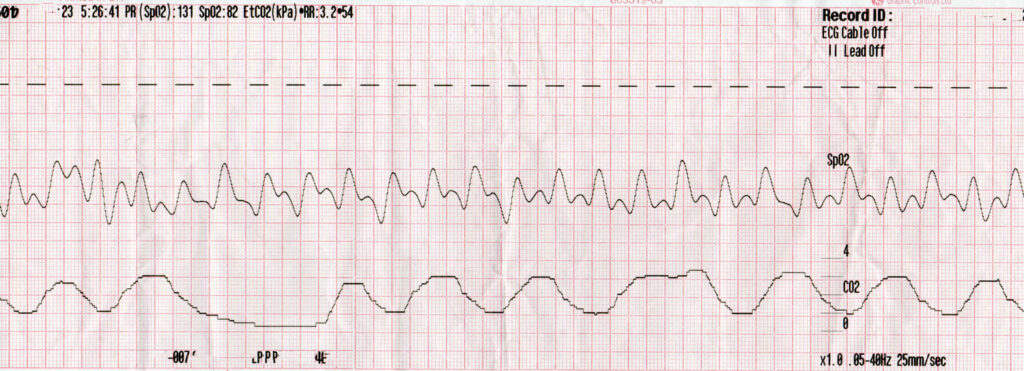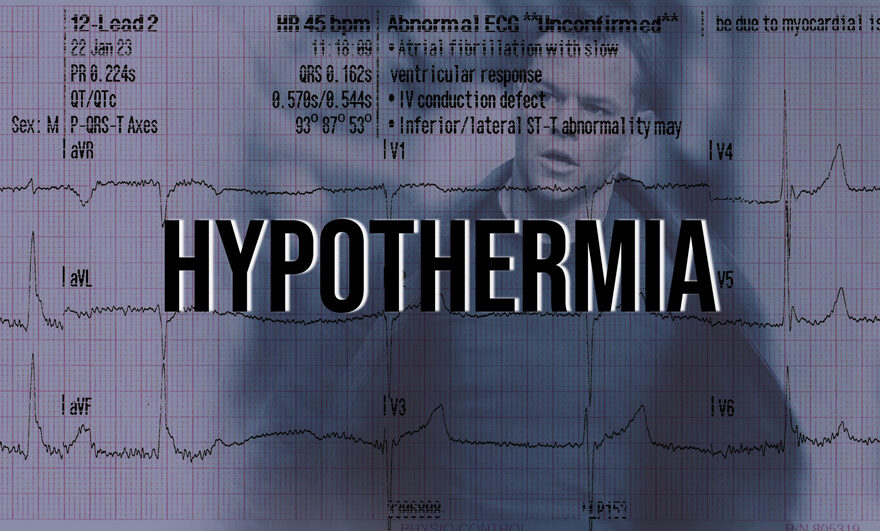Respiratory #1: Pneumonia

A 40 year old gentleman was complaining of flu-like symptoms for around two days before becoming increasingly short of breath. Normally fit and well, with a regular BMI and enjoying regular excercise and a non-smoker, the patient did not fit the classic demographic to have an acute respiratory complaint.

As you can see from the printout above, the patient was tachycardic and tachypnoeaic at around 55-60. The sats were 75% at their lowest. Temp was 39.8°C. GCS15. On auscultation, no added sounds were audible.
Fulll flow 02 was applied and the patient and the sats rose to 84% and the patent was blue-lightened into the local hospital.
The patient was in Type 2 respiratory failure treated with ABX and C-PAP and the chest imaging showed pneumonia, concentrated in the left side. Covid negative. A day later the patient was placed in an induced coma and transferred to a specialist centre. It is unknown what happened from this point.
Pneumonia is inflammation of the lungs which is cause by a bacterial, viral or fungal infection. In this case, it developed out of hospital known as Cumminty-Acquired Pneumonia (CAP).
Incidence doubles after 75 years and almost triples after 85 years.
The most common causal organisms are
- S. pneumoniae
- M. pneumoniae
- C. pneumoniae
- Influenza A
A pulmonary inflammatory response causes the alveoli to fill with extracellular fluid, eurythrocytes and leukocytes, and/or pus, which makes them non-functional. THis additionally creates a pulmonary shunt: the passage of blood through the lungs that doesn’t get oxygenated. Bacteria can spread to the blood (sepsis) and/or to the pleura, resulting in pus in the pleural space (empyema).
Pneumonia Symptoms (in addition to the usual)
- Short history (normally 2-3 days, can be <3 weeks)
- Coarse Creps on auscultation, normally monolateral
- Reduced lung expansion
- Herpes Labialis (cold sores)
- Hypoxia, sometimes improving depending on which side they lay.
- Dehydration (breathing can be made worse by administering fluids due to expansion of secretions in the chest).
Additionally, pneumonia can be a secondary infection and so someone who complains of having gotten over the flu recently can point in the direction of having contracted pneumonia.

